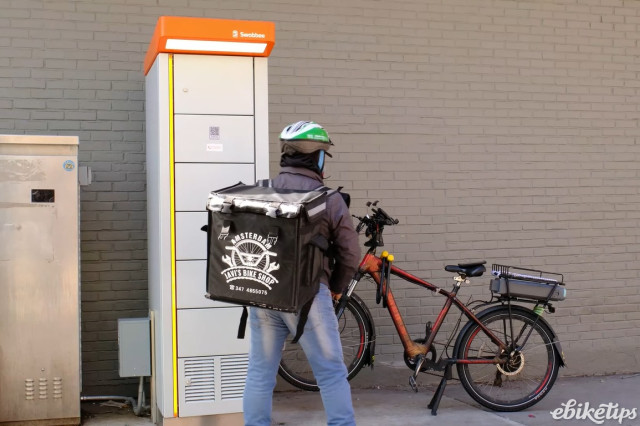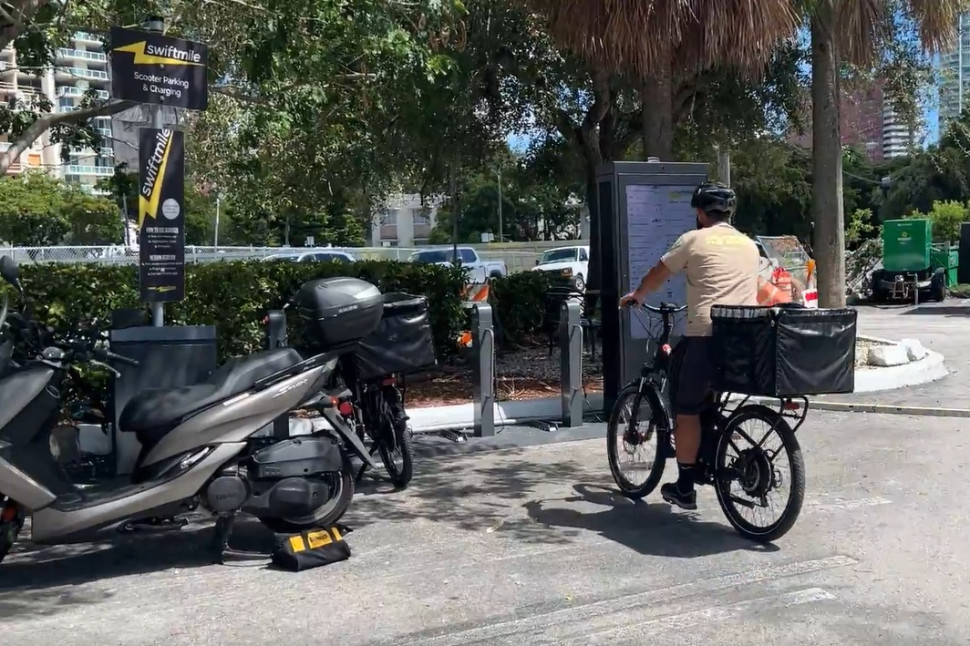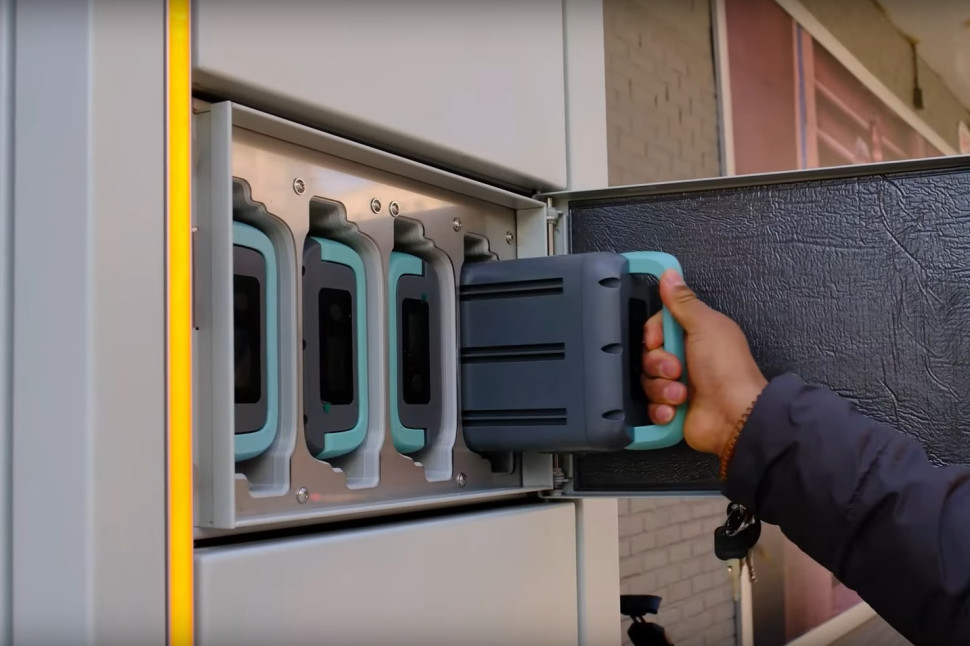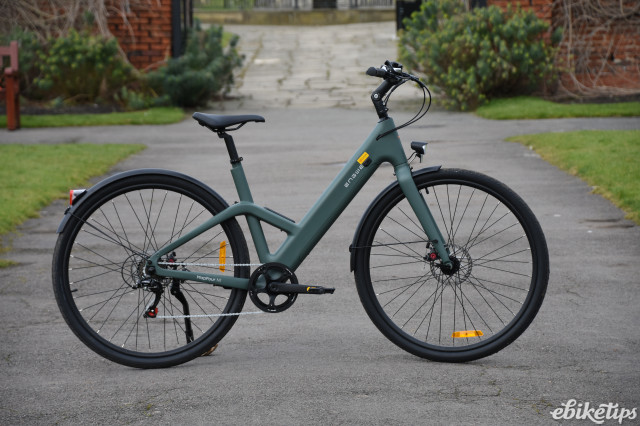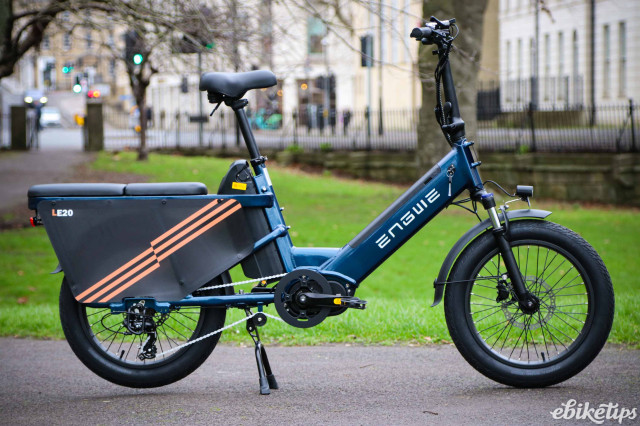In June last year, New York responded to a growing number of e-bike fires by investing $25m in public charging infrastructure. A trial began in March, comprising both outdoor charging points and battery swap stations. This has now been deemed sufficiently successful that it has been extended into next year.
The project is focused on delivery riders. Reliant on e-bikes or e-scooters for their work, but among the lowest paid workers in the city, cheap chargers, batteries and retrofit kits are understandably common.
> “Vast majority” of seized e-bikes are being used by delivery riders
The trial not only reduces the need to charge potentially substandard batteries in the riders’ homes, it also involves replacing those batteries with safer ones certified by Underwriters Laboratories (UL) – which is now a legal requirement in New York.
Over the first five months of the trial, over 8,000 battery swaps were made at swap stations, and nearly 1,000 charging sessions were completed.
Frequent users swapped batteries an average of eight to 14 times per week and made use of the direct-vehicle charging stations for an average of five to eight sessions per week.
About half of the trial participants who attended subsequent focus groups said that they had entirely stopped charging their batteries at home, while the remainder said they were charging at home significantly less.
As well as saying they felt safer, users also reported being more productive because they no longer have to carry an extra battery, no longer need to take breaks for charging, or are able to travel longer distances.
> E-bike safety: What to avoid when buying an e-bike, battery or charger
New York City Department of Transportation Commissioner Ydanis Rodriguez said: "Delivery workers have one of the toughest jobs in New York City, and our public e-bike charging pilot program is helping them safely charge their bikes while they're on the go.
"So far, this pilot programme has resulted in over 8,000 UL-certified lithium-ion batteries being swapped and nearly 1,000 on-site e-bike charges being made by participating delivery workers."
Three companies are taking part in the pilot: Swiftmile, Popwheels and Swobbee.
Swiftmile supply secure bike racks equipped with charging capabilities, while Popwheels and Swobbee both operate battery swap stations.
We reported on Swobbee previously when they launched in Germany in 2022 when Taiwan’s hugely successful Gogoro was put forward as their role model.
> Are e-bike batteries safe? What’s the difference between a safe battery and a fire risk?
